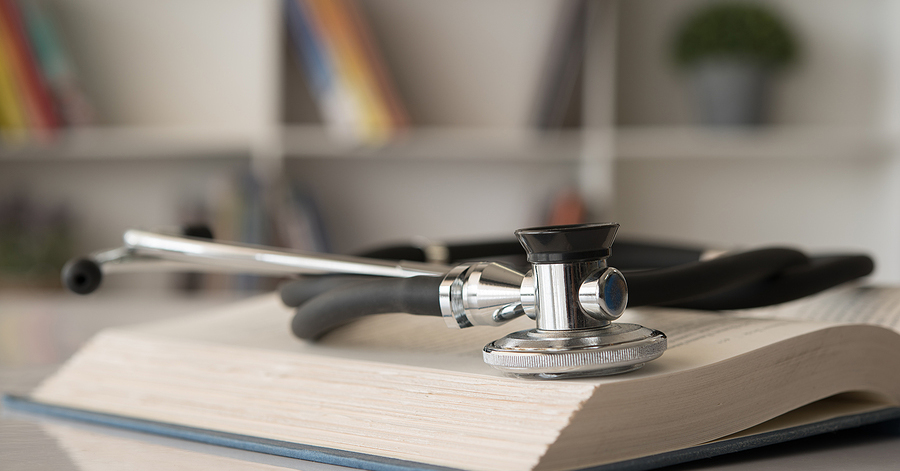Anal Fistula FAQ: Common Anal Fistula Questions Answered

Sometimes, it seems that hemorrhoids get all the attention. Everyone knows about that problem. Other colorectal issues, such as anal fistulas, don't have the same reputation. In fact, many people have never heard of fistulas!
When you find out that you have an anal fistula, then, where can you turn for answers? For starters, give this anal fistula FAQ guide a look! It contains helpful information about some of the most common questions regarding this colorectal condition.
What is an anal fistula?
You can develop an abnormal tunnel called an anal fistula in your colorectal region. The tract originates in an anal gland and connects the anal canal to the skin of the buttocks.
A fistula can be classified as superficial, intersphincteric, transsphincteric, suprasphincteric or extrasphincteric, depending on the shape of the tract and which muscles it crosses.
What is fistula-in-ano?
This is another name for an anal fistula. The two terms can be used interchangeably.
What causes an anal fistula?
Often, anal fistulas develop in relation to an anal abscess. That's an infection that happens after an anal gland becomes clogged.
An anal fistula can develop while the infection is still active or after it resolves. Whether an abscess drains on its own or with the help of a doctor, there's a risk of ending up with a fistula. According to some estimates, 40% to 50% of anal abscesses lead to anal fistulas.
Even still, not all fistulas are associated with abscesses. Sometimes, they develop for unrelated reasons.
You can learn more about anal abscesses and fistulas in this video:
What are the symptoms of an anal fistula?
Patients often experience discomfort, irritation or pain when dealing with an anal fistula. You may notice a throbbing sensation as you sit down or walk around. The pain may be especially pronounced during a bowel movement. Coughing can hurt, too.
The anal area might be red or swollen. It could feel itchy.
An anal fistula can leak blood or pus. Fecal matter can come out of it. The discharge may smell unpleasant.
Some people experience fevers or chills during an infection. There can be a general sense of fatigue or malaise as well.
What are the risk factors for developing an anal fistula?
Anal fistulas can happen to anyone, but some people are more prone to developing them than others.
In particular, people who suffer from Crohn's disease, colitis, diverticulitis, HIV or tuberculosis may be more likely to be diagnosed with anal fistulas. For those patients, having an abscess may not be a necessary first step in developing a fistula.
In some cases, surgery in the anal region can leave someone more susceptible to fistulas. Having rectal cancer and radiation therapy could be another risk factor.
Can you treat an anal fistula at home?
No, you should see a doctor if you suspect that you have an anal fistula. At-home care will not make your fistula go away.
How do doctors diagnose anal fistulas?
Your medical provider will start by performing a visual exam of your anal region. The fistula opening might be visible. For a look inside your anus, the doctor may use a tool called an anoscope.
The doctor may need to order additional tests. Imaging procedures like ultrasounds and MRIs can help the medical team identify where the fistula tract goes.
Because anal fistulas are associated with various medical diagnoses, your doctor may also want to test you for Crohn's disease or another condition.
What can doctors do for an anal fistula?
In some cases, your doctor may try prescribing antibiotics, but that's not done for all cases of anal fistula. It's most common for patients who are dealing with Crohn's disease.
For the majority of patients, surgery is the best option. There are several varieties of fistula surgery.
Before you undergo surgery, your doctor might want to insert a seton. That's a medical thread or band that's looped through the fistula tract and gradually tightened. Its presence helps the fistula drain so that scar tissue can form. Taking this initial step for eight to 12 weeks can improve the outcome of a surgical procedure.
What is anal fistula surgery?
Doctors use various surgical methods to treat anal fistulas. Which one is best for you may depend on the severity and location of your tract.
In a fistulotomy, the tract is cut open. That is known as unroofing the tract. The goal is for the fistula tunnel to heal from the inside out.
Fistulotomies have an impressive success rate, but they can lead to incontinence if the sphincter muscle is damaged. For fistulas that cross the sphincter, doctors may use alternative surgical methods like LIFT or flap procedures instead.
Also, there are other treatment options that are less invasive. Minimally invasive procedures offer an easier recovery period and a reduced risk of serious complications. Some of these treatments involve using glue or plugs to fill the fistula tract. Laser ablation is another option.
Laser procedures involve inserting a special probe into the tract. As the laser moves along the passage, its energy ablates the tissue. This seals the tract shut. Various studies have shown laser ablation success rates of 71% to 81%.
Help for Anal Fistulas
Having an anal fistula can be miserable, but you've taken the first step in getting help by reading through this anal fistula FAQ guide. It may have answered many of your initial questions about the condition.
Now it's time to involve a doctor for guidance and treatment. To find a colorectal specialist who performs anal fistula laser ablation, use our online provider finder.
As with all medical issues, your physician is the ultimate source as to what procedure best fits your needs. Discuss all options and get a second opinion if you have any doubts. These articles are intended to be a source of general information only.
